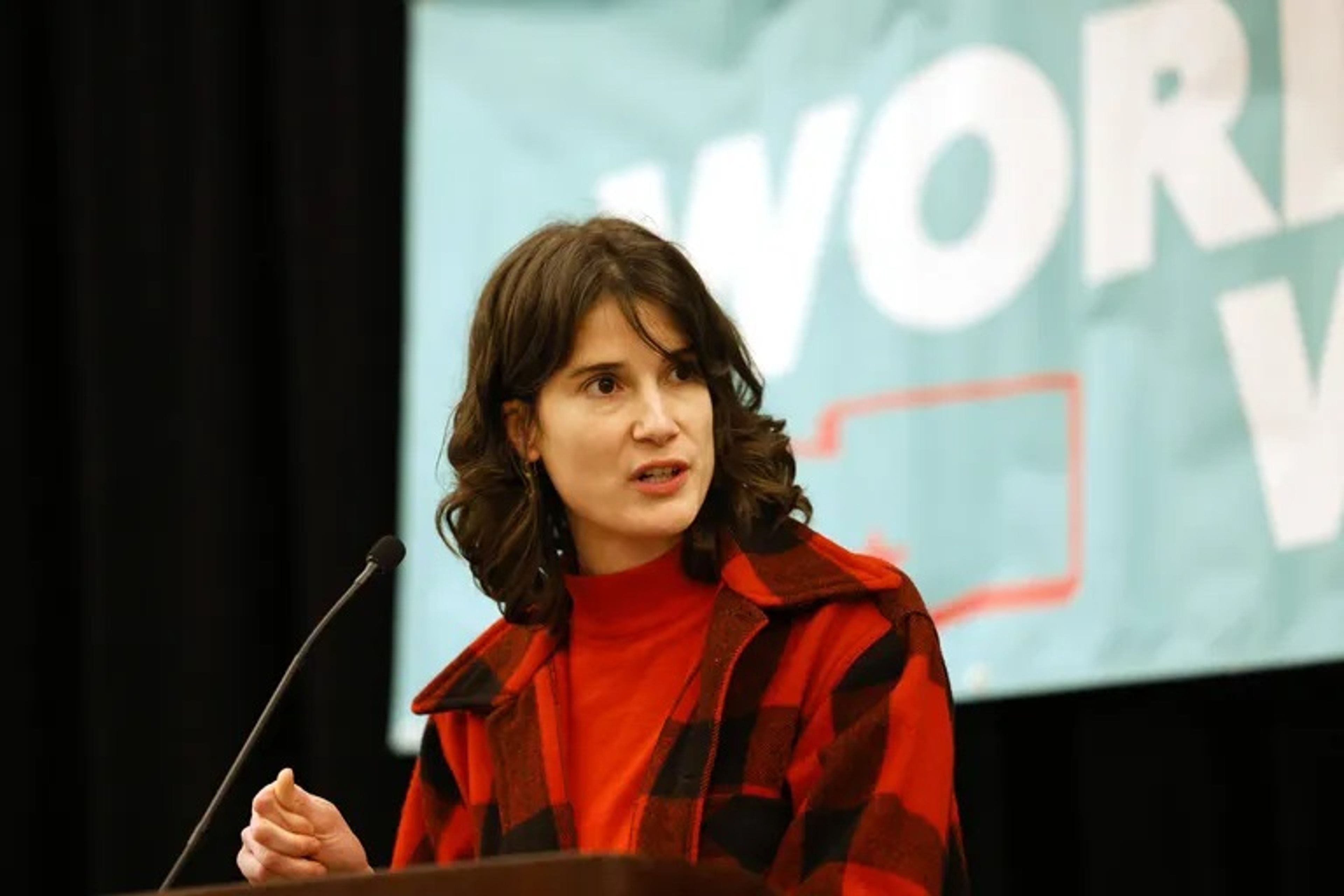Perez wants to change how Dems approach elections
WA representative looks to team with Maine’s Golden to create committee on electoral reform
If every state had primaries like Washington’s, with candidates of all parties competing against each other, would our politics be less extreme?
What if every state had an independent commission to draw legislative and congressional districts? Would our legislatures, our Congress, be more representative?
Or what if we elected our national representatives using ranked choice voting, which Seattle voters adopted for city primary elections a couple of years ago? Would our politics be less partisan?
U.S. Rep. Marie Gluesenkamp Perez thinks, or at least hopes, the answers to all these questions could be yes. Gluesenkamp Perez and U.S. Rep. Jared Golden, D-Maine, want to establish a select committee of 14 members of Congress to look at ways to reform our electoral processes in the hopes of reducing political polarization.
Gluesenkamp Perez and Golden, both moderate Democrats, are among the dwindling few U.S. House members who represent districts carried by the presidential candidate of the opposite party.
“I think an increasing number of the American population is viewing Congress as more partisan, more dysfunctional, less productive, and they have less confidence in the body,” Gluesenkamp Perez said in an interview. “I think 90% of us agree on 90% of the issues, and y
and yet we see a legislative policy that does not match our shared interests.”
The Electoral Reform Select Committee Act would convene a committee of lawmakers to look for alternatives to the ways we currently elect members of Congress. Because it is a House resolution, it would only need to pass the House for the committee to be created.
The legislation has support from more than 170 political scientists, who wrote in support that “changing how we elect our representatives can promote cooperation, temper polarization, and generate more consensus-building in policymaking.”
The political scientists, in their letter, wrote that America has a long history of electoral reforms, even if they have been more rare in recent years.
The House continuously grew in size, as the country grew in size, until a 1929 law froze it at 435 members. The House also had multimember districts, in some states, until a 1967 law required that representatives be elected in single-member districts.
Jake Grumbach, a professor of public policy at the University of California, Berkeley, called the move to examine electoral reforms a step in the right direction but also only a first step.
Grumbach, who has written a book on the effect of partisanship on political institutions, said our electoral systems were designed for a different age, when partisanship was much less important than it is now.et we see a legislative policy that does not match our shared interests.”
“A huge amount of research suggests that US political institutions have become less functional in the age of nationalized politics and polarization,” he wrote in an email. “Voter and media attention, political fundraising, as well as activist and party activity, have all transformed over the last generation, but U.S. political institutions remain built for an age of localized and regional politics in which partisanship doesn’t matter as much.”
The reforms the committee would look at, Grumbach said, wouldn’t necessarily favor either party but would make it easier for voters to influence their elected representatives.
Party primaries, for instance, with Democrats competing against Democrats and only Democrats voting (and the opposite for Republicans) often result in the most extreme candidate making it through. General election voters are then left with an extreme candidate from either side without one that may match their preferences.
Only a small percentage of the electorate votes in primaries, “so the table is really kind of set before most of us get there,” Gluesenkamp Perez said. “And I think having open primaries can deliver a less partisan approach.”
Establishing a committee to look at possible changes would only be a first step. And it is extremely difficult to make some of the changes the committee would consider. But, Grumbach said, “they won’t ever happen if people don’t start talking about them.”









